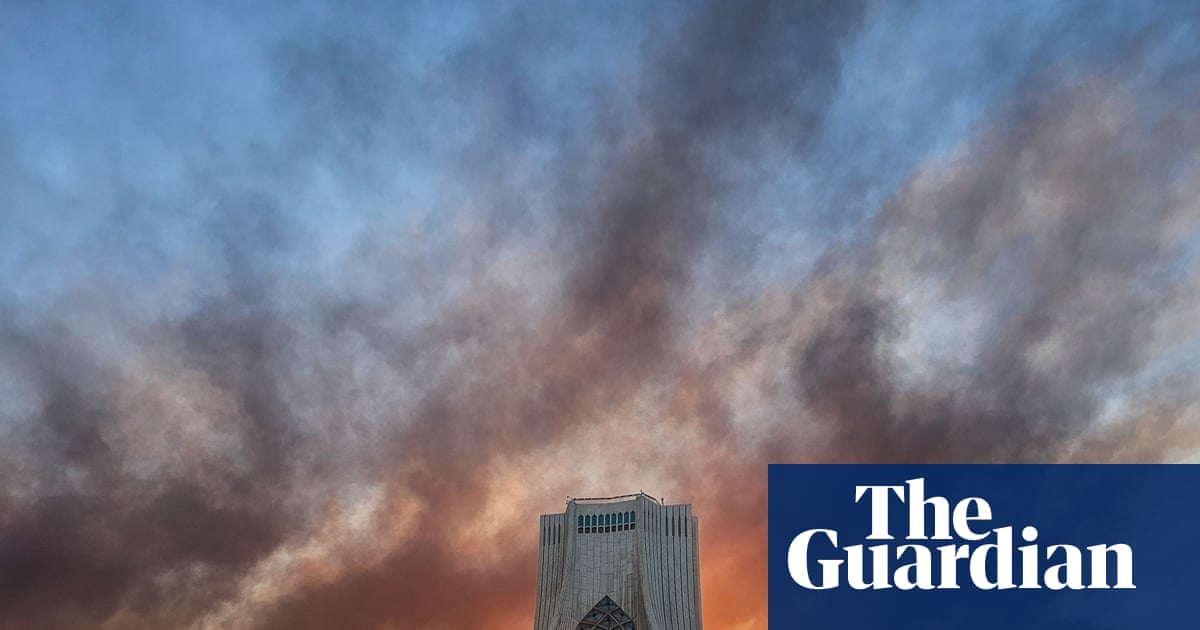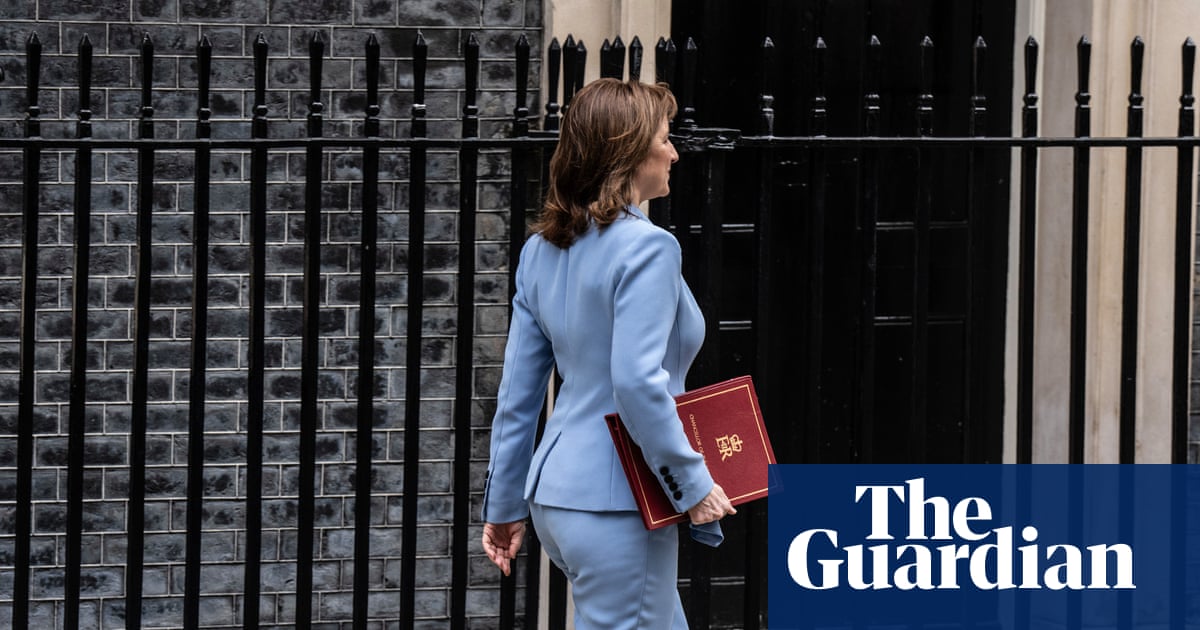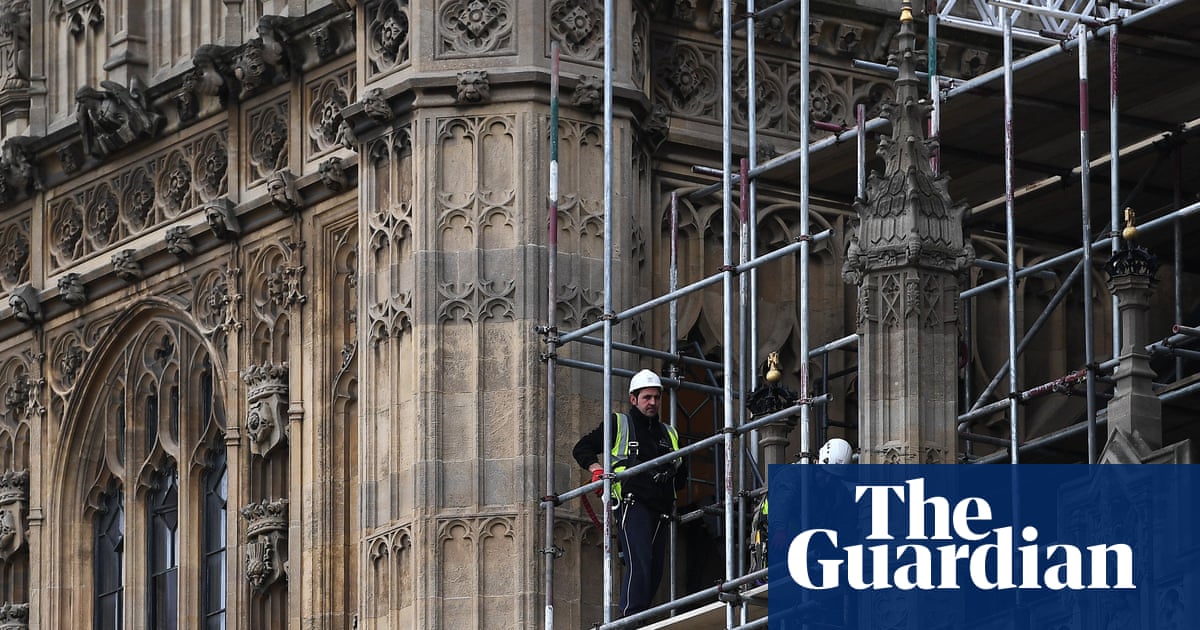Ministers banned Palestine Action despite being told by their advisers it could “inadvertently enhance” the group’s profile, an official government document shows.
The briefing paper was written three months before the proscription of the group, which was set up to take direct action to halt UK arms supplies to Israel.
It was prepared in March by officials at the Home Office and the Ministry of Housing, Communities and Local Government, helped by experts in counter-terrorism policing.
Its contents were obtained by the investigative website the Detail and shared with the Guardian.
Under the headline “How would the proscription of the organisation be viewed by British people”, one section of the document warned a ban could be a divisive issue.
It described Palestine Action as a “small single issue group with lower mainstream media exposure” than other direct action groups such as Just Stop Oil. But it noted that the organisation’s direct actions, and arrests of its activists, won media attention.
The advisers said polling suggested “growing frustration with Israeli military methods and actions in Gaza”.
In the lead-up to its key argument, the document noted a survey finding that 60% of Britions believed Israel had gone too far in the war in Gaza and that a similar number supported a ban on arms shipments.
“These are positions around which PAG (Palestine Action group) forms its identity, organising explicitly to resist Israel’s weapons trade in Britain,” it said.
“In the event that PAG is proscribed, their profile may inadvertently be enhanced, finding support among similarly minded members of the public who oppose the British footprint in the Israeli arms industry.”
The advisers said the public disagreed with calls from the rightwing media for tough action, such as a ban.
Other sections of the document cited polling saying the public had a “general lack of awareness” regarding Palestine Action.
It stated that “much of the British public are likely currently unaware of Palestine Action and would remain so in the event of proscription or, if informed, would remain largely unconcerned”.
The ban under terrorism laws has led to protests where thousands have been arrested for holding up signs in public saying “I oppose genocide, I support Palestine Action”.
The document, which was a community impact assessment, said a ban under terrorism laws could heighten Muslim-Jewish tensions and be perceived as government bias in favour of Israel.
The document warned ministers and senior officials that proscription could become “a flashpoint for significant controversy and criticism”.
after newsletter promotion
Huda Ammori, a co-founder of Palestine Action, said the document’s warnings had come true: “Awareness of the issues and popularity of the group have grown exponentially. The ban has backfired.”
The home secretary at the time, Yvette Cooper, announced the ban in June, immediately after the group’s activists allegedly caused damage at RAF Brize Norton in Oxfordshire. Officials claimed the damage was extensive.
The timing of the document shows the ban was under consideration well before it was announced.
Ministers were told a ban might be seen as an attack on civil liberties, with the advisers saying that some within government as well as the wider public may see the decision as “a creep of terrorism powers into the realm of free expression and protest.”.
A Home Office spokesperson said: “Palestine Action has conducted an escalating campaign involving criminal damage to Britain’s national security infrastructure, intimidation, and alleged violence. That activity puts the safety and security of the public at risk.
“Decisions on proscription are not taken lightly. They are informed by a robust evidence-based process, with contributions from a wide range of experts from across government, the police and the Security Service.”
A counter-terrorism policing spokesperson said:“Decisions relating to proscription are a matter for the government.
“As the public would expect, counter-terrorism policing, alongside a range of other agencies, routinely provide material to the Home Office to assist their work.”
The document also revealed that the Cabinet Office had been paying for monthly surveys of community tensions related to Israel and Palestine.

 3 months ago
67
3 months ago
67

















































